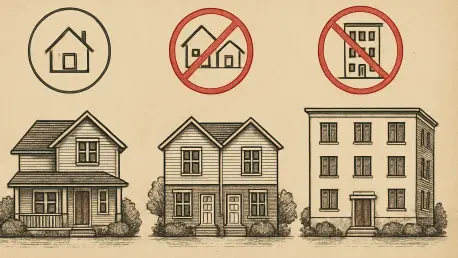In a pivotal move to address the pressing housing crisis, the Town of Huntsville has rolled out substantial revisions to its Short-Term Rental Accommodation (STRA) and Community Planning Permit (CPP) Bylaws, aiming to prioritize long-term housing solutions over transient accommodations. These updates come as a response to growing concerns about the availability of affordable rental units in the area, where short-term rentals have often taken precedence, limiting options for residents seeking stable, long-term homes. By introducing stricter regulations and oversight, the town seeks to strike a balance between supporting tourism-driven economic benefits and ensuring that housing remains accessible for local families and individuals. This initiative reflects a broader trend among municipalities grappling with similar challenges, where the need for sustainable community growth often clashes with the allure of short-term rental profits. The changes signal a commitment to fostering a stronger sense of community while addressing critical housing needs with a thoughtful, structured approach.
Tackling Housing Challenges with STRA Reforms
The revised STRA Bylaw introduces several key measures designed to regulate the short-term rental market and encourage long-term housing availability in Huntsville. A significant amendment mandates that property owners must hold ownership for at least one year before listing their property as a short-term rental. During this initial period, the property can only serve as a personal residence or be rented out for terms of 30 days or more. This rule aims to deter speculative buying solely for short-term rental purposes, ensuring that new properties contribute to the long-term housing pool first. Additionally, a cap of 250 STRA licenses has been set, with licenses distributed on a first-come, first-served basis. This limitation helps control the proliferation of short-term rentals, preserving housing stock for residents who need permanent accommodations, and underscores the town’s focus on creating a balanced housing ecosystem that serves the broader community.
Beyond ownership and licensing restrictions, the updated STRA Bylaw also tightens enforcement through a revised penalty system for non-compliance. Previously, license holders faced license revocation after accumulating two violations in a single year, but the new policy extends the timeframe, allowing for three strikes over a two-year period before revocation. This change addresses concerns about recurring issues by providing a longer window to track violations, discouraging repeat offenders while giving operators a fair chance to correct their practices. The extended strike policy reflects an effort to enhance accountability among STRA operators, ensuring that community standards are upheld. Moreover, the town has implemented a structured licensing process, with renewals opening on November 1 each year and new applications accepted until the cap is reached, further demonstrating a commitment to fairness and oversight in managing short-term rental operations within the area.
Zoning Adjustments and Community Impact
Amendments to the CPP Bylaw introduce zoning restrictions that further support Huntsville’s long-term housing goals, particularly in the Urban Low Density Precinct (UR1) zone. In the near future, short-term rentals will no longer be permitted in this area, a move aimed at preserving residential neighborhoods for permanent residents. However, existing STRA operations in the zone are grandfathered in, meaning they can continue even if ownership changes, provided they maintain active licensure. If a property ceases to operate as a licensed STRA for more than two years, it loses this exemption and cannot revert to short-term rental use. This policy balances the rights of current operators with the town’s vision for sustainable housing by preventing unchecked growth of short-term rentals in key residential areas, thereby safeguarding community character and ensuring that housing stock prioritizes local needs over transient stays.
Another critical aspect of these updates is the financial framework supporting community development through short-term rental operations. STRA owners are required to collect a 4% Municipal Accommodation Tax (MAT) on accommodation revenue, excluding incidental fees such as cleaning or security deposits, and remit it quarterly via an online portal. The revenue generated from this tax is reinvested into tourism promotion, community initiatives, and projects that enhance residents’ quality of life. This mechanism ensures that short-term rentals contribute positively to the town’s growth, offsetting some of the housing challenges they pose. By channeling these funds into meaningful local programs, Huntsville demonstrates a nuanced approach to managing the economic benefits of short-term rentals while mitigating their impact on housing availability, fostering a sense of shared responsibility among operators and residents alike.
Reflecting on a Balanced Housing Strategy
Looking back, the Town of Huntsville took decisive steps to reshape its housing landscape through comprehensive updates to the STRA and CPP Bylaws. These reforms, centered on ownership duration requirements, a strict license cap, and targeted zoning changes, marked a deliberate pivot toward prioritizing long-term rental options and community stability. The extended strike policy for non-compliance added a layer of accountability, ensuring that short-term rental operators adhered to regulations over a broader timeframe. Meanwhile, the structured licensing and taxation processes provided a clear framework for oversight, balancing economic contributions with residential needs. Moving forward, stakeholders can anticipate ongoing adjustments as the town evaluates the impact of these policies, with an eye toward refining strategies that further enhance housing access. Property owners and residents alike are encouraged to stay informed about application processes and compliance requirements to support this evolving vision for a sustainable community.









